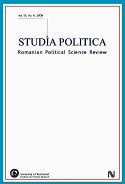The Salafism in Europe. Between Hijra and Jihad
The Salafism in Europe. Between Hijra and Jihad
Author(s): Marius LazărSubject(s): Politics / Political Sciences
Published by: Editura Universităţii din Bucureşti
Keywords: Salafism; Europe; Islam; Jihad; Al-Qaida
Summary/Abstract: Salafism is a current within the Sunni Islam, which interprets Islamic history and dogmas with special emphasis on doctrinary, spiritual and behavioural purity. Its central tenet is that there is a radical breach between the authentic Islam of the first decades of Muslim history and the subsequent developments of the cultural and religious Islamic tradition, the latter being blamed for having allowed the corruption of the divine message during encounters with foreign and non-Muslim cultures. Contemporary Salafism generally promotes a conservative vision of Islam in the manner of Wahhabism and encourages the development of a universal type of Muslim, with no specific cultural allegiances, whose identity is based on the strict observance of a clearly spelled out theological and behavioural catechism. In addition to this pietistic Salafism – non-political in principle – a militant Salafism has emerged in recent years, which proclaims the superiority of Islam over the Western world and the need for a return to the original Islamic teachings, as well as envisaging an apocalyptic vision of a global battle between good and evil, fought by two generic entities called the Islam and the West. This sublimated imagery and vision of war moves beyond mere rhetoric and encompasses more than a substitute ideology (possibly meant to compensate for the failure of the traditional nationalisms in many Muslim countries). Effectively involved in the Afghan war, most of the radical movements thereby developed have added to their ideological position a substantial military and organizational expertise. Following the retreat of the Soviet army from Afghanistan, many Jihadi movements – later to acquire media visibility due to their association with al-Qaida – steer their strategic interests towards the West, in particular Europe and the United States. The increasingly large Muslim population settled here facilitates activities of recruitment, mobilization and implementation of violent action taken in the name of the globalizing belligerent goals envisaged by Islamist ideologists.
Journal: Studia Politica. Romanian Political Science Review
- Issue Year: 9/2009
- Issue No: 4
- Page Range: 691-707
- Page Count: 17
- Language: English

